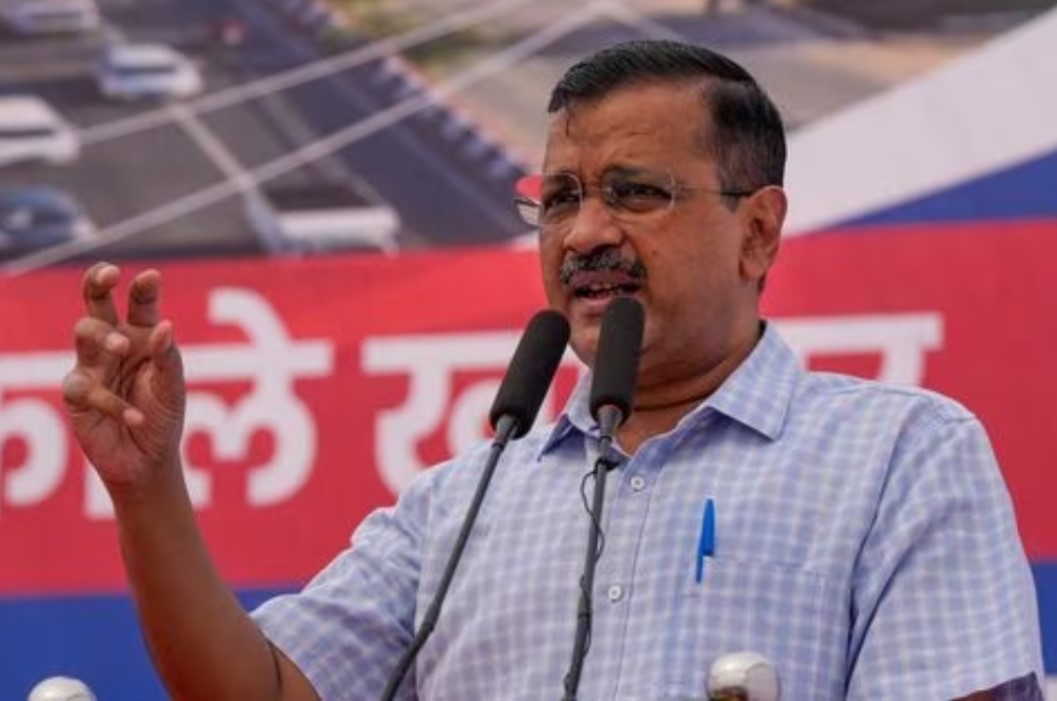
Arvind Kejriwal Summoned by ED for the 3rd Time in Liquor Probe; Skips 2nd Summon, Citing Vipassana Retreat
Arvind Kejriwal, the Chief Minister of Delhi, has been summoned by the Enforcement Directorate (ED) on January 3 as part of the ongoing liquor probe.
This marks the third summons, with Kejriwal having skipped the first two. The third summons coincided with the denial of bail for his Rajya Sabha MP, Sanjay Singh, whose case was deemed genuine by the court, citing evidence of his alleged involvement in money laundering.
The initial summons for Kejriwal was issued on November 2, which he skipped, citing election and governance commitments in Delhi and campaigning in Madhya Pradesh and Chhattisgarh. A second summons for December 21 was also ignored as Arvind Kejriwal attended a vipassana session the day before.
In response to the summons, Arvind Kejriwal expressed concerns about the timing, suggesting political motivations. He argued that such summons, lacking case details and purpose clarity, have been declared invalid by high courts in similar circumstances. Kejriwal emphasized his commitment to attending a pre-scheduled Vipassana meditation course, an annual practice for the past 25 years, and deemed the summons a “fishing and roving enquiry.”
Kejriwal, a law-abiding citizen, asserted transparency in his life and challenged the validity of the ED’s summons. Despite his schedule being publicly known, he received the summons on the eve of his departure for Vipassana. Arvind Kejriwal originally scheduled to leave for Vipassana on Tuesday, deferred it for an INDIA bloc meeting and eventually left on Wednesday at around 1:30 pm.
In related developments, Manish Sisodia, arrested in February in the liquor probe case, had his judicial custody extended till January 19, 2023. Sanjay Singh, the second AAP leader arrested in the same case, had his bail dismissed by the court, which considered the evidence sufficient for money laundering charges. The court stated that there are reasonable grounds to believe Singh’s guilt in the alleged offence.
The court asserted that the evidence and material presented were sufficient to provide reasonable grounds for believing that the individual is ‘guilty’ of the alleged offence, as per the provisions under Section 45 of the Prevention of Money Laundering Act (PMLA).
Concurrently, the third summons aligns with a court’s denial of bail to Arvind Kejriwal’s Rajya Sabha MP, Sanjay Singh. The court affirmed the genuineness of the case against Singh, emphasizing the presented evidence indicating his involvement in alleged money laundering.
Arvind Kejriwal’s initial summons on November 2 was explained by him, citing governance-related work and election campaigning commitments. Subsequently, a second summons for December 21 was disregarded as Arvind Kejriwal attended a vipassana retreat the day before the scheduled appearance.
Responding to the summons , Arvind Kejriwal wrote to the Enforcement Directorate (ED), expressing apprehensions about the timing and suggesting potential political motivations behind the repeated summonses. He questioned the validity of the summons, characterizing them as a fishing and roving inquiry.
Kejriwal underscored his commitment to law-abiding conduct and a transparent life, asserting that he had nothing to conceal. He highlighted his annual participation in the Vipassana meditation course for the past 25 years, with the latest session scheduled from December 20.
In a related development, Manish Sisodia, Deputy Chief Minister of Delhi, arrested in February in connection with the liquor probe, had his judicial custody extended until January 19, 2023. Additionally, Sanjay Singh, another AAP leader involved in the case, had his bail dismissed, with the court citing reasonable grounds to believe his involvement in money laundering.
As the developments unfold, the intricate dance between legal proceedings and political undertones continues to shape the narrative surrounding Arvind Kejriwal and his associates. The summons from the Enforcement Directorate (ED) and the subsequent reactions from Kejriwal and his party members underscore the high stakes involved.
The court’s declaration of the evidence being sufficient to establish ‘guilt’ under the provisions of the Prevention of Money Laundering Act adds a layer of complexity to the ongoing case. The legal battle seems poised to intensify as the ED pursues its inquiry into the alleged money laundering associated with the liquor probe.
For the latest updates-click here


